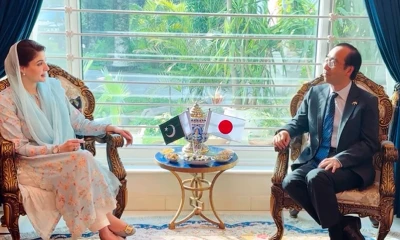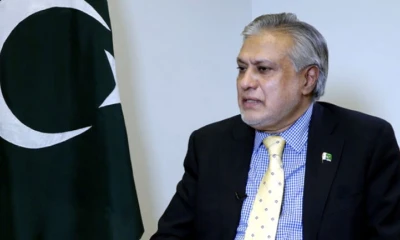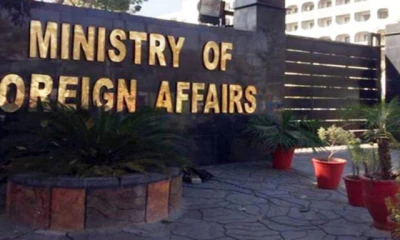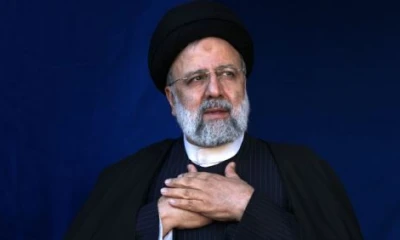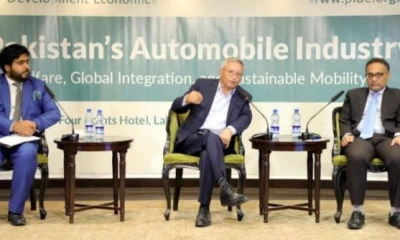-


LIVE | Information Minister Punjab Uzma Bukhari Important Press Conference | GNN
-


خدیجہ شاہ کا صحافی کے سوال پر دبنگ جواب #gnn #pti #imrankhan #khadijashah #news #breaking #latest
-


Justice Babar in Action | Millions people will give Khan historic welcome | Muneeb Farooq Analysis
-


190 Million Pound Case Updates | Breaking News | GNN
Regional
Salik visits Rehlat Manafea Company, reviews Hajj days’ arrangements
Upon arrival, the company’s CEO, Ahmed Abdullatef Tammar, along with his team, welcomed the Pakistan delegation, led by the religious minister

Makkah Al- Mukarrama: Minister for Religious Affairs and Interfaith Harmony Chaudhry Salik Hussain visited the Rehlat Manafea Company, a service provider, on Sunday to review the arrangements made for Pakistani Hujjaj, particularly during the five Hajj days in Mashair from 8-12 Zilhaj.
Upon arrival, the company’s CEO, Ahmed Abdullatef Tammar, along with his team, welcomed the Pakistan delegation, led by the religious minister.
Secretary, Ministry of Religious Affairs, Dr Syed Ata-ur-Rehman, Director General (Hajj), Jeddah/Head of Pakistan Hajj Mission, Abdul Wahab Soomor, Director Makkah, Faheem Afridi, Head of Medical Mission, Brigadier Jamil Ahmed Lakhiar, Director Mouavneen Asghar Yusufzai and other officials assisted the minister in the meeting.
Minister Salik Hussain appreciated the company for making timely and elaborate arrangements, including transport, accommodation, and catering in Mina, Arafat and Muzdalfa. He stressed the need to explore ways and means for further collaboration in Hajj-related matters aimed at extending maximum facilitation to the guests of Allah Almighty at the holy land. During the meeting, CEO Ahmed Abdullatef Tammar said the company, which has a team of highly skilled professionals, has finalized 100 percent arrangements well before time.
The minister invited the CEO to visit Pakistan for increased cooperation and collaboration in future Hajj-related plans. Accepting the invitation, the CEO said he would visit Pakistan in August.
Later, Chaudhry Salik Hussain took a round of Mina, Arafat, and Muzdalfa to witness the arrangements on the ground. The minister expressed satisfaction over the arrangements.
The visit of Minister Chaudhry Salik Hussain to Rehlat Manafea Company demonstrated the government’s commitment to ensuring a smooth and spiritually fulfilling Hajj experience for Pakistani pilgrims. The minister’s appreciation for the company’s efforts and his invitation to the CEO to visit Pakistan reflect the government’s desire for continued collaboration and improvement in Hajj-related services.
Pakistan
Yet another education emergency!
The purpose of the education emergency is to improve the education situation and to enrol out-of-school 2.6m million children
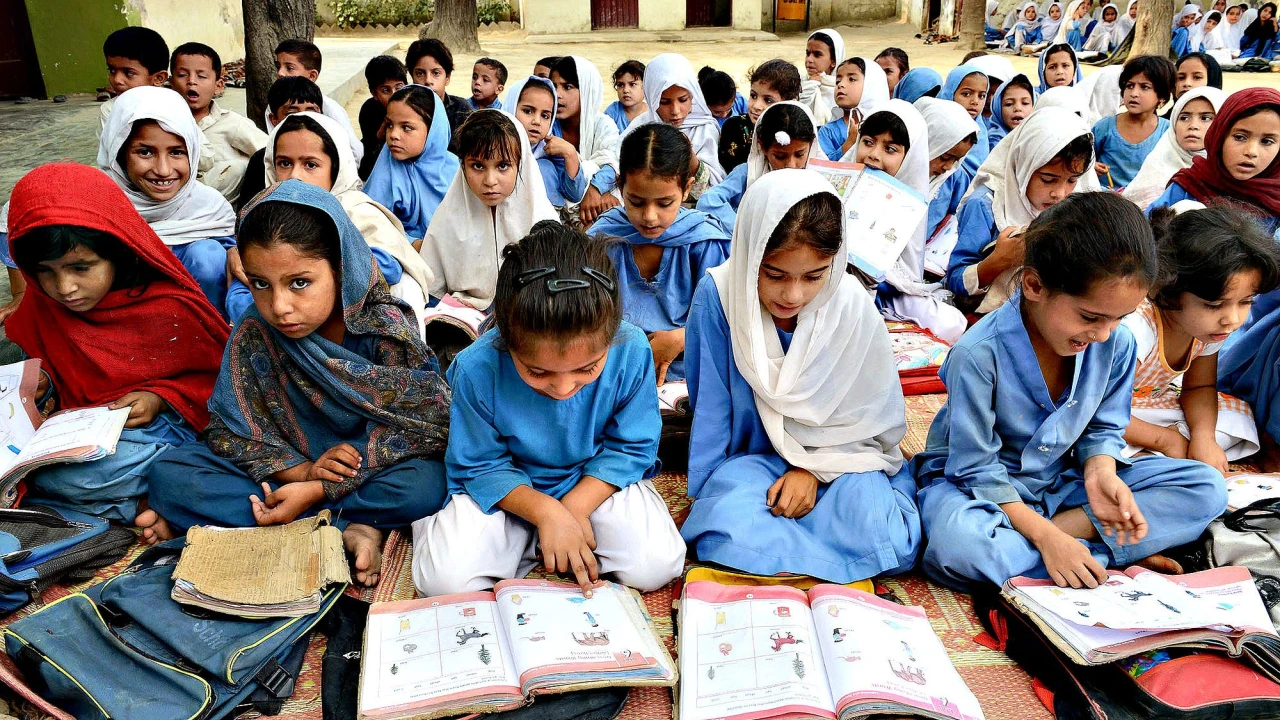
Dr Lubna Zaheer
Prime Minister Shehbaz Sharif has recently announced the implementation of an "education emergency" for four years in the country. The announcement came during an educational conference held in Islamabad. The purpose of the implementation of the education emergency is to improve the education situation and in particular to enrol the 2.6 million children who are still out of school. The premier says that he will supervise the whole process himself and will also talk to the chief ministers of all the provinces in this regard.
Although this announcement is welcoming, it’s not new at all. Such statements have been made by various governments in the past. According to my memory, the term educational emergency has also been used before. In the past, the prime ministers, chief ministers and senior government officials had expressed deep concerns about the educational situation. Of course, some practical efforts were also made to reform the education sector.
However, nothing happened to show any significant change. Had there been a big change, our 2.6m of school age today would not have missed the sight of a school, the posts of thousands of teachers in our government schools would not have been vacant for a long time, the incidents of paper leakage and cheating would not have become the norm during the exams, hundreds of our government schools would not have been deprived of regular boundaries, toilets, clean drinking water, etc, there would have been some improvement in the quality of education in government schools and even after 70 years, our governments would not have been trying to achieve the target of 100% primary education. This situation is because no revolution and no remarkable change have taken place in our education sector to date.
Dozens of educational programmes have been created and run in the country. Parha Likha Punjab (Literate Punjab) programme was launched. Then we heard about the Daanish Schools system. Another programme was run to provide milk to children in schools, an enrollment campaign was launched, fee waiver programmes were run, and the chief minister and prime minister scholarship programmes were also launched in the past. From time to time educational policies were devised and implemented without any positive results. Now the educational emergency is going to be implemented once again. The question is what difference will this announcement make? Has any strategy been formulated in this regard?
One real problem is that we always lack direction and don't take any decisions bluntly. Along with targeting the opposition political parties, their policies and plans are also subjected to political revenge. When governments around the world make policies or plans on a matter, all aspects of the matter are considered. After passing through various stages, when a policy is made or a plan is started, previous governments do not influence its continuity. The case is different with us. Here many good projects in public interest face political opposition. Instead of promoting or advancing the plan of the government of its political opponent, a government lays the foundation for a new plan to get its nameplates on the projects. A lack of long-term planning and leadership does not move things forward. The same has been happening in the case of education. Mention any plan or policy related to school education, which has been in progress for the last 10 to 15 years. At least I’m not aware of any such plans.
Lofty promises and claims are made for throwing dust in the eyes of innocent people and apartheid policies are also announced to appease the people. Take an example from the recent past. The PTI government had claimed to implement a uniform education system, the announcement, however, was limited to the uniform curriculum. A publicity campaign for this policy was carried out vigorously, but a uniform curriculum could not be implemented. How could it be? It was and still is very difficult work to do.
We have many different education systems in place and each has its curriculum. On the one hand, there are government schools, where the children of the poor study and on the other there are high-end English-medium private schools, reserved for the children of the rich. Apart from this, there are medium English medium schools established in the streets. Then there are religious schools. According to my poor understanding, religious madrassahs also teach different curricula according to the religion. This means that from day one of the euphoric announcements of a uniform curriculum, most educationists were aware that it was an impossibility. Yet government budgets and energy were spent on the issue.
Now PM Shehbaz has declared an emergency. This declaration is well known to the ears. May Allah make them [the rulers] achieve their goals. However, the question is how will the goals related to this announcement be determined? What strategy will be formulated in this regard? Who will implement this strategy and how? What is the magic wand through which more than 2.6m children will be sent to schools in four years? Those children who work to run their household expenses, who will bear the financial burden of these children?
To send these kids to school, hundreds, if not thousands, maybe millions of schools have to be built. We already have a shortage of thousands of teachers, the services of thousands of teachers will be needed for 2.6m children. This means that a large number of recruitments will have to be made. This entire process will require a huge budget. Currently, Pakistan spends the least on education in the region. It’s a shame that we are even below in spending than Bangladesh and Afghanistan. Where will the budget be provided to educate these children?
Of course, the goals of the educational emergency will not be limited to the number of students. These will also include improving the quality of education. The adoption of the curriculum to modern requirements, introduction of new technology in schools and teacher’s training will also be part of this emergency plan. Has it all been planned? Also remember that after the 18th constitutional amendment, the education sector is entrusted to the provinces. The PM has announced that he will talk to the chief ministers of the provinces for the implementation of the educational emergency. The political situation is that the chief minister of a province isn’t willing to talk to anyone and has threatened to attack Islamabad. Can a coherent strategy be formulated in this situation?
I could not listen to the Prime Minister's speech completely. So I don't know whether the declaration of the educational emergency is limited to school education only or it also includes the higher education sector. The higher education sector is also in dire need of an educational emergency. Dozens of universities across the country have been without permanent vice-chancellors for several months. The quality of education in public and private universities is declining. Tales of our teachers' poor research are gaining global notoriety. A couple of days ago, I came across the news of a foreign journal that Pakistani researchers are second in the world in publishing fake scientific (and research) articles. This situation is sad and shameful. May Allah Almighty have mercy on our education sector.
The writer is an educationist and analyst.
Disclaimer: The views expressed in this article are those of the author and do not necessarily reflect the official policy or position of www.gnnhd.tv
World
Iranian President Raisi's helicopter crashes amid poor weather
The incident occurred in the Jofa region of East Azerbaijan province, with state television reporting ongoing rescue efforts

Tehran: A helicopter carrying Iran’s President Ebrahim Raisi experienced a “crash upon landing” due to poor weather conditions as confirmed by the Islamic Republic News Agency (IRNA) on Sunday.
The incident occurred in the Jofa region of East Azerbaijan province, with state television reporting ongoing rescue efforts. The difficult weather conditions, including heavy fog, have hindered the rescue teams' access to the crash site.
President Raisi was traveling in the mountainous forest area of Dizmar near Varzaghan in East Azerbaijan province. Alongside Raisi, Iran’s Foreign Minister Hossein Amirabdollahian, the governor of East Azerbaijan province, and other officials were also on board, as reported by the IRNA news agency.
The convoy included three helicopters, with the other two helicopters landing safely at their destinations, according to Tasnim news agency. The reformist Shargh daily also confirmed that while Raisi's helicopter crashed, the other two landed without incident.
Interior Minister Ahmad Vahidi later stated that one helicopter "made a hard landing due to bad weather conditions," adding that communication with the aircraft was challenging.
Earlier that day, Raisi had been in Azerbaijan to inaugurate a dam with Azerbaijan’s President Ilham Aliyev. This dam is the third constructed by the two countries on the Aras River.
Iran operates a variety of helicopters, but international sanctions complicate the acquisition of parts for maintenance. Much of its military air fleet dates back to before the 1979 Islamic Revolution.
Ebrahim Raisi, born in 1960 in Mashhad, northeast Iran, quickly rose to high office following the 1979 Islamic Revolution. At just 20 years old, he was appointed prosecutor-general of Karaj, near Tehran. He served as Tehran’s prosecutor-general from 1989 to 1994, deputy chief of the Judicial Authority for a decade from 2004, and national prosecutor-general in 2014.
-
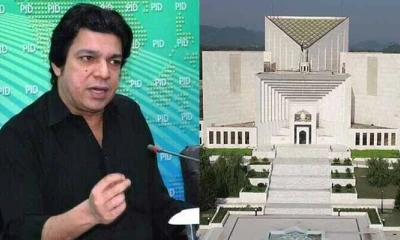
 Pakistan 2 days ago
Pakistan 2 days agoSuo Motu case: CJP seeks response from Vawda, Mustafa
-
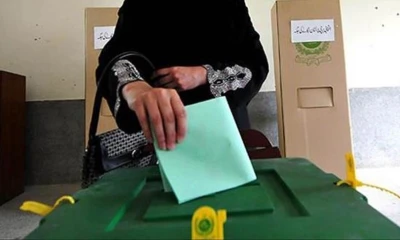
 Pakistan 1 day ago
Pakistan 1 day agoPolling for NA-148 Multan-1 by-election today
-
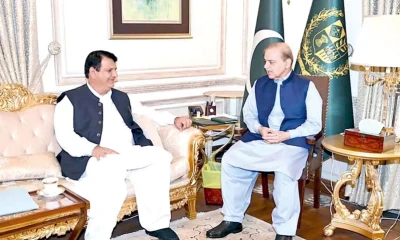
 Pakistan 1 day ago
Pakistan 1 day agoPM directs Amir Muqam to leave for Kyrgyzstan immediately
-
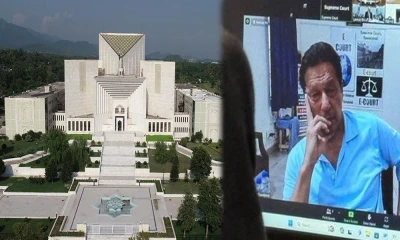
 Pakistan 2 days ago
Pakistan 2 days agoAfter Imran’s photo leak, mobiles banned in SC
-
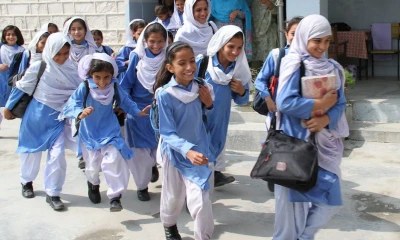
 Pakistan 2 days ago
Pakistan 2 days agoSummer holidays announced in Punjab
-

 Business 1 day ago
Business 1 day agoPrices of gold go extremely high today
-
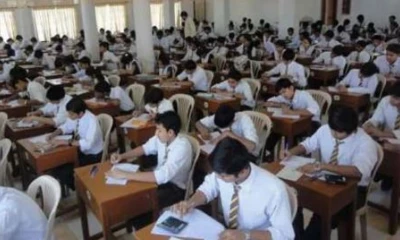
 Regional 8 hours ago
Regional 8 hours agoIntermediate exams postponed in Sindh due to heatwave alert
-
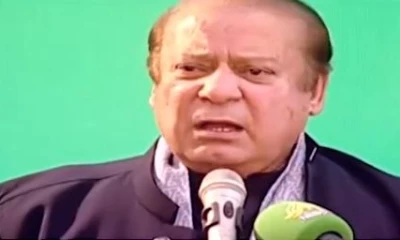
 Pakistan 1 day ago
Pakistan 1 day agoIn PML-N huddle, Nawaz Sharif deplores past 'injustices'

